About the Product
What is LUCI?
LUCI is a game-changer for power wheelchair riders.
It is a first-of-its-kind hardware/software product which attaches to power wheelchairs to provide security, stability and connectivity through cloud and sensor-fusion technologies. By attaching LUCI to their new or existing power chairs, drivers gain long overdue access to a world – their world – where collisions are avoided and falling off ramps or curbs is prevented.
Where is LUCI manufactured?
LUCI is headquartered in Nashville and made in Denver.
When will LUCI be available?
LUCI is already being used by riders in multiple states, with more coming soon. We have been filling U.S. customer orders since December, 2020.
LUCI is compatible with and taking orders for the following power wheelchair models:
- Permobil M3
- Permobil M5
- Permobil F3
- Permobil F5 (excluding the VS standing chair)
- Quickie Q700 M
- Quickie Q500 M
- Quickie Q300 M mini
- ROVI X3
- AmyLior R3 (coming soon)
If you use a model of power wheelchair that you don’t see on this list, please sign up on our waiting list so we can keep you updated and inform you when LUCI is available for your wheelchair.
How much does LUCI cost?
The current MSRP is $9,854, which includes installation, hardware, software and free over-the-air updates for the lifetime of the unit. Each LUCI unit is also covered by a three-year warranty starting from the time of purchase.
Here’s the thing: If you have private insurance, or workman’s comp, please ask your clinician and DME provider about your coverage eligibility for a product like LUCI. They will need to write a prescription for LUCI documenting the “medical necessity” of the product. Since we’re new to the world, insurance companies are not yet aware of the vast medical and financial benefits LUCI can provide.
Will LUCI be covered by insurance?
While we can only guarantee private pay orders, we have had a number of successful insurance approvals. This is in large part due to excellent documentation and justifications to insurance providers. Typically, LUCI is submitted under a miscellaneous durable medical equipment (DME) code.
We are working hard to make LUCI accessible and affordable for everyone. If you have medical insurance or workers’ comp, please obtain a prescription and ask both your ordering practitioner and your clinical seating specialist to document the medical need of the product. As always, they should focus on your individual activities of daily living and how LUCI will benefit you. We describe the steps and general rationale for submitting to the style of code in The LUCI Funding Toolkit.
Our Guide to a LUCI Letter of Medical Necessity expands on the Toolkit to provide language and strategies we’ve seen insurance be responsive to in how individuals justify LUCI. Both of these documents are guides and should be carefully and thoughtfully tailored to your specific situation, diagnosis, history and needs alongside your Clinician, Physical Therapist and Assistive Technology Professional.
These documents are always available to you on our website at http://luci.com/funding/
On which chairs does LUCI work?
Today, LUCI is compatible with:
- Permobil M3
- Permobil M5
- Permobil F3
- Permobil F5 (excluding the VS standing chair)
- Quickie Q700 M
- Quickie Q500 M
- Quickie Q300 M mini
- ROVI X3
- AmyLior R3 (coming soon)
Our team is hard at work to make LUCI available for all power wheelchairs. If you use a different model of power wheelchair, please sign up to our mailing list, and we will inform you when LUCI is available for your make and model of chair. And, if you’d like, let us know which model you’d like to see us work on next.
Is LUCI compatible with alternative drive methods?
Yes. If your chair drives – whether that’s with head, chin, sip ‘n puff, or switches – LUCI can make it safer.
What are the features of LUCI?
Our company began with the question: How can we make power wheelchairs safer for Katherine and her friends? We thought about the features we wanted our loved ones to have. And, ultimately, we ended up creating LUCI, which adds several never-before-seen capabilities to power chairs, including:
- Collision Avoidance:LUCI is designed to empower wheelchair drivers to navigate their daily lives without fear of running into things like walls, furniture, humans or pets. It does this in a unique way: when LUCI’s sensors detect an obstacle the on-board software smoothly scales back the user input – or how much force the driver is putting on the joystick or alt drive. This decreases the speed of the chair and allows the driver time to navigate around or away from whatever was detected. Don’t think of it as emergency braking; it’s enhanced mobility through your world.
- Drop-off Protection:Even a small drop-off can flip a large wheelchair. LUCI helps drivers avoid tipping by first recognizing steps and drop-offs that pose danger and then applying the same scaling approach to slow, then stop the wheelchair. We know the world is not flat, so if there are edges that don’t pose a threat – that’s below 2.5 to 3 inches in height for a typical power wheelchair – LUCI will allow you to drive on over.
- Anti-tipping Alert System:There are a lot of bad ramps in the world. LUCI monitors the slope riders are driving on and provides an audible alert if the ground or ramp is becoming a tipping danger. In the event that a chair tips over, LUCI sounds an alarm for help and can be configured to automatically alert – through text or e-mail – loved ones with what happened and where.
- Cloud-based Communications and Alerts:Life with a disability is a team sport, and LUCI helps connect riders and their team. The MyLUCI portal (accessible via iOS app, Android App, or on myluci.com) allows you to view your data and share it selectively with loved ones, clinicians or other members of your team. LUCI can be configured to alert others of specific events, such as your location if your battery gets dangerously low. And, because LUCI connects your wheelchair to the modern world, you can even ask Alexa and Google Assistant about MyLUCI data like battery percentage, charging status and more.
- Secure Health Monitoring:LUCI is built to help wheelchair riders manage their health. This includes allowing riders and team members to create and share custom seating programs. LUCI sends encrypted data securely to each user’s HIPAA-secure MyLUCI portal.
What is LUCI+Air?
LUCI+Air™ is a first-of-its-kind, real-time, smart air cushion pressure monitor. LUCI+Air takes the guesswork and stress out of air cushion inflation. In addition to knowing your air cushion is properly inflated, LUCI+Air gives you important information about how much time you spend sitting and how often you are off-loading from your cushion. We’re giving LUCI users the most accurate monitoring and continuous, effortless tracking, ever. The patent-pending LUCI+Air works with the MyLUCI app to display the data you need to manage your skin.
To learn more visit luci.com/seating.
How will this change the Wheelchair industry? Why is this the right time for LUCI?
LUCI elevates the importance of and the user’s right to safety, independence, and access to innovative technology in line with the modern world today. LUCI offers a platform for progress. Ultimately, we hope the experience and information LUCI provides will lead to real improvements in drivers’ health and quality of life.
From a safety standpoint, LUCI introduces features that are expected on other motorized vehicles. Our outside research found that a power wheelchair collision can create forces greater than those allowed by law in cars – without the airbags, mind you – and can cause more trauma than an NFL helmet-to-helmet tackle. (More on that here.) LUCI’s collision avoidance protects riders while allowing them greater independence with fewer accidents and fewer costly chair repairs.
LUCI also introduces innovative technology that creates a bridge in the tech divide between the “modern world” and those living with disabilities. It allows riders to connect to the modern world through Alexa, Google Assistant and health devices. And, by creating an operating system for wheelchairs, LUCI opens up opportunities for platform-based innovation and new research breakthroughs that are lacking in today’s industry. We are eager to work with others in the industry to elevate innovation, empower riders and create an inclusive world of modern mobility.
Is LUCI personalized for each user?
Yes. LUCI tunes chair performance to individual riders, based on the driver’s own reaction time, their seating position, and other preferences. Our technology takes real-time readings on riders’ steering inputs and uses those to tune the performance of their chairs.
Why should wheelchairs have a key?
Because your wheelchair’s electronics should be personalized to you.
The LuciLink™ wheelchair key used by LUCI transmits a unique electronic code over BLE (Bluetooth Low Energy) to unlock the rider’s individual profile and provide increased personalization. LUCI communicates with a HIPAA-secure cloud service, MyLUCI™, which allows alerts and communication from LUCI to be shared with the rider’s team of loved ones, caregivers and medical practitioners. MyLUCI allows each rider to control access to their data and to customize alert and data preferences.
How do you set-up LUCI?
Professional installation is included with any purchase of a LUCI system. Installation typically takes about 45 minutes and requires minimal modifications of your wheelchair. The installation process includes two steps: first, installing the LUCI hardware on the chair; then, personalizing LUCI for the rider.
Personalization is accomplished with a setup app that can be accessed using any WiFi-connected device. The setup app will prompt the rider to answer a series of questions related to their preferences. But the coolest part of the setup process is the easy series of testing, including a reaction time test, which allows LUCI to truly tune the driving experience to the rider.
This is a new thought for the wheelchair industry. Our technology is tuned to the human in the loop, rather than making the human behave to the needs of the machine.

About Our Company
How and when was LUCI started?
The company was inspired by Katherine, the daughter of CEO and co-founder Barry Dean. Katherine was born 16 weeks early, weighing 1 pound 10 ounces, with cerebral palsy. Now 19, she has used a wheelchair most of her life.
Collisions and tipping over in wheelchairs are common, critical issues. When a close friend’s mother was badly injured in a tipping accident in her wheelchair, the reality of these threats hit home. Barry partnered with his smarter (and, some would say, also more handsome) brother Jered, who at the time served as director of the Colorado School of Mines’s Capstone Design@Mines program. He had spent more than a decade in new product development in areas from complex weapon systems to medical devices.
Jered began working to re-engineer Katherine’s chair to be safer and smarter. In February 2017, he visited Nashville and installed the first working LUCI prototype on Katherine’s wheelchair. During that trip, Jered and Barry discussed what it would take to design and potentially mass-produce a product that reimagined mobility for power wheelchair riders.
Three years and nearly 14 filed patents later, LUCI is ready to bring modern mobility to the world.
Why Now, Why Today?
The real question is why not now? Why hasn’t it been done before? How can we arrive in 2020 with no better safety system on power wheelchairs than a seatbelt?
We searched for an existing solution. We found small, incremental refinements to the power machine but no breakthroughs that would lead to a better future for Katherine.
The current pace of innovation in the world of wheeled mobility is not acceptable. We knew there had to be a better solution. Finding none, we rolled up our sleeves and got to work.













